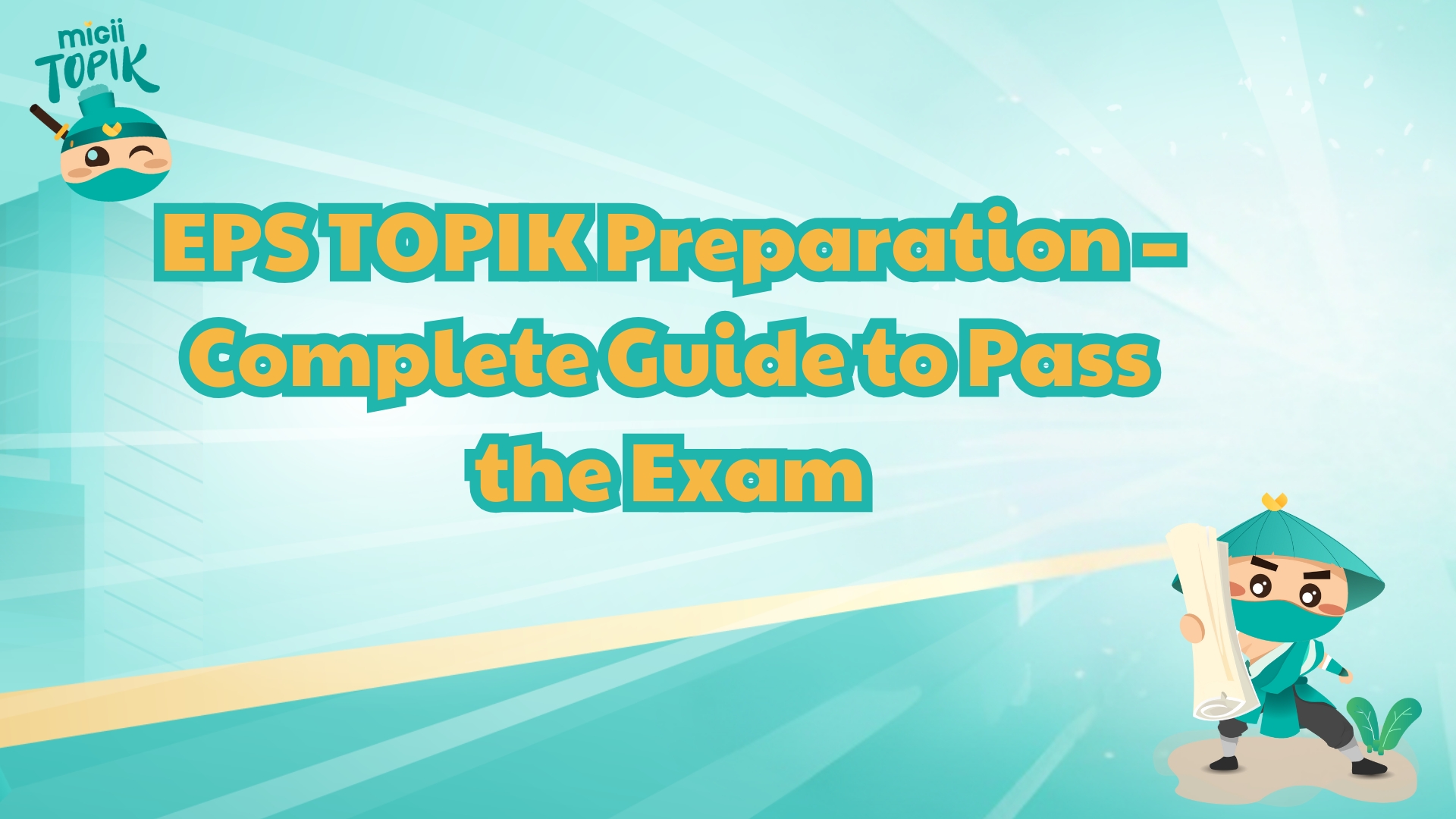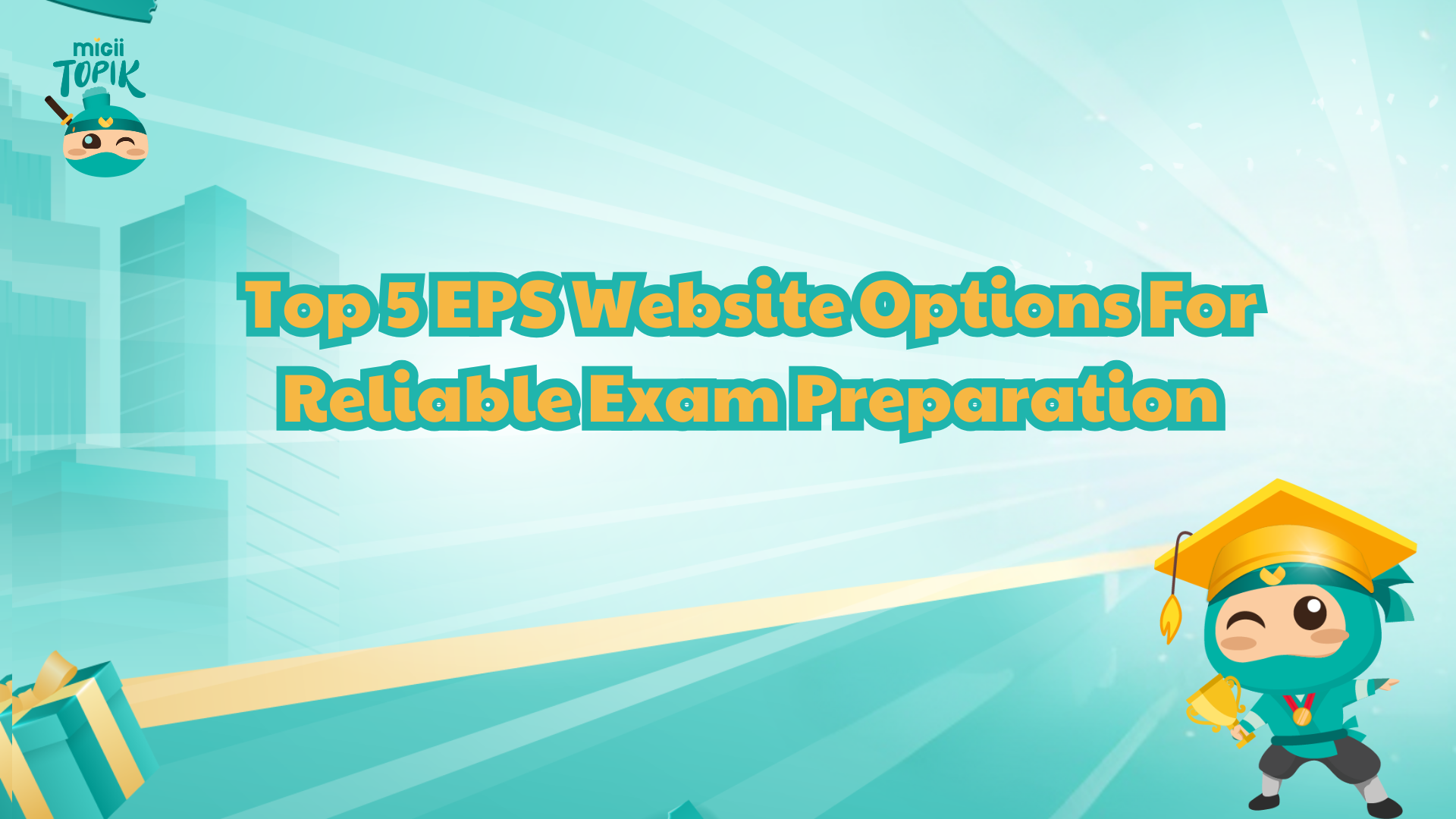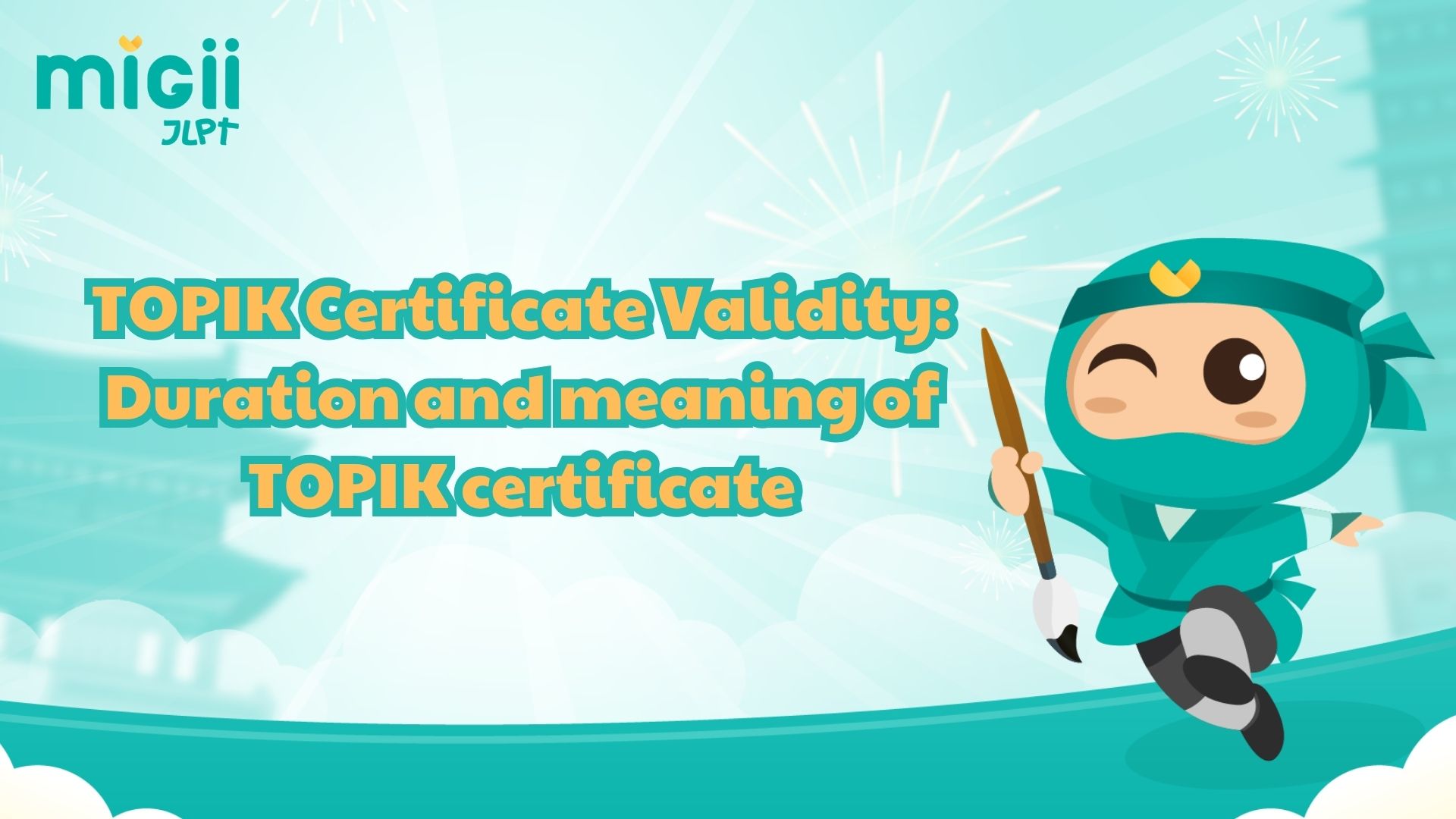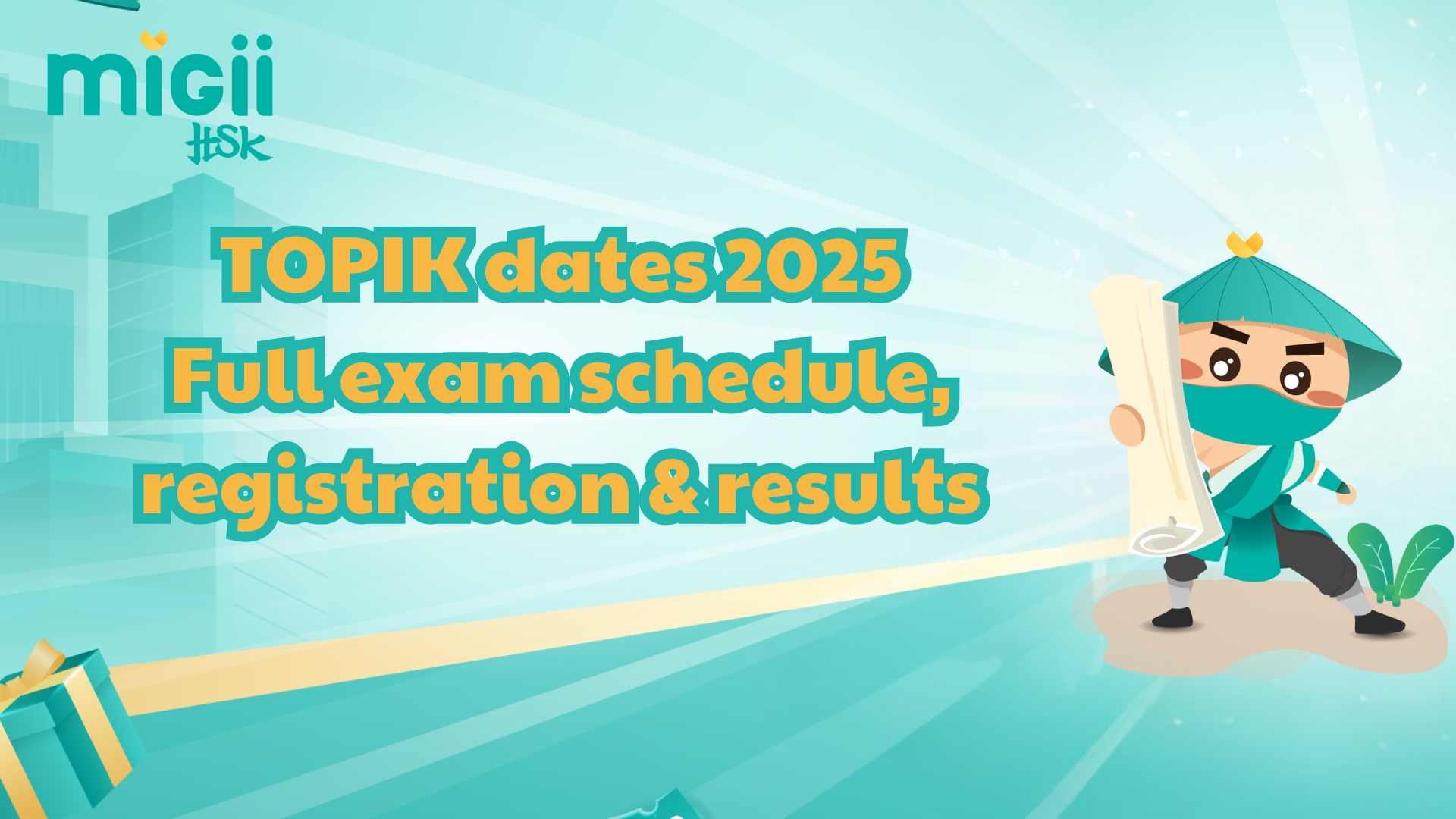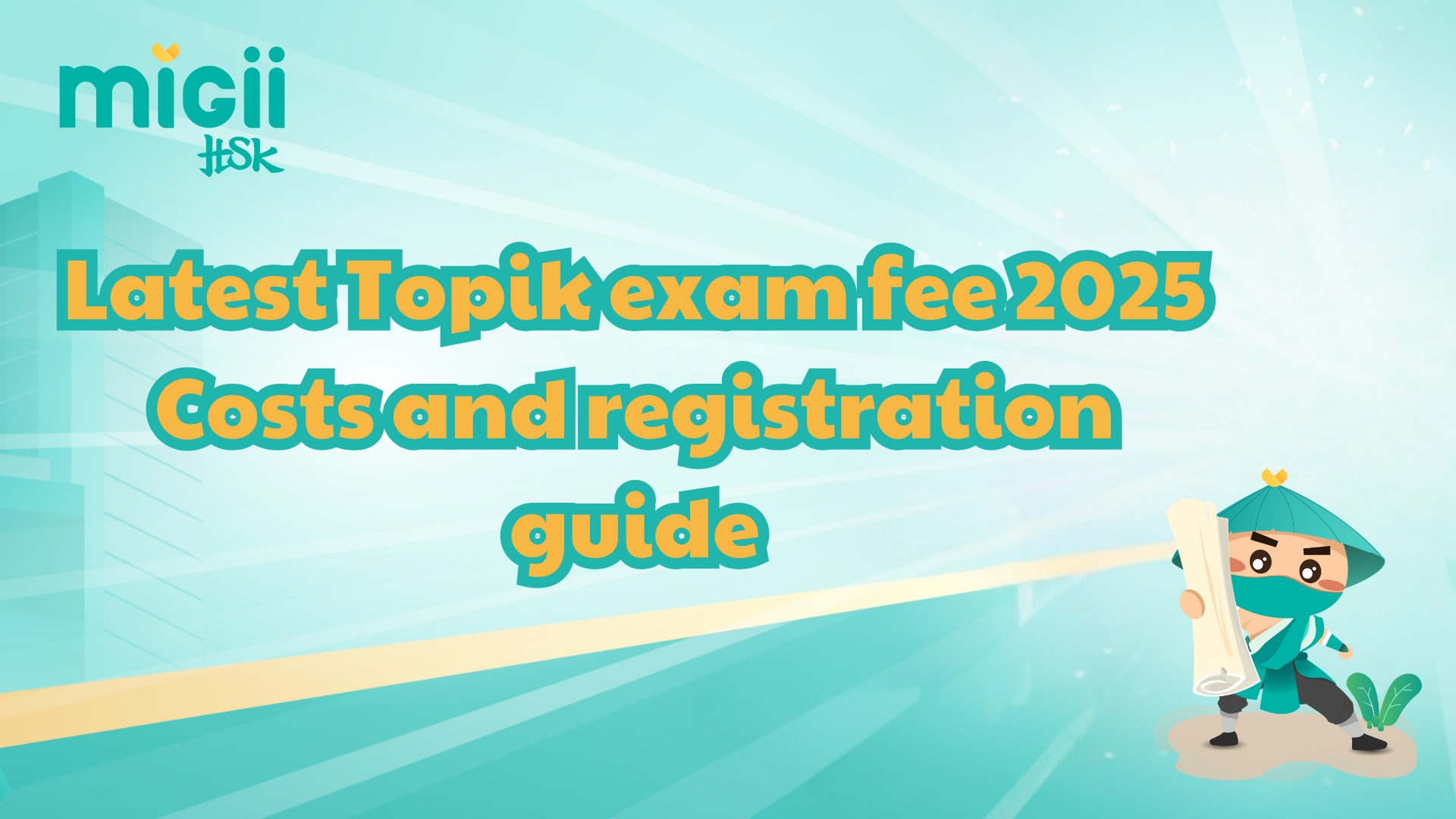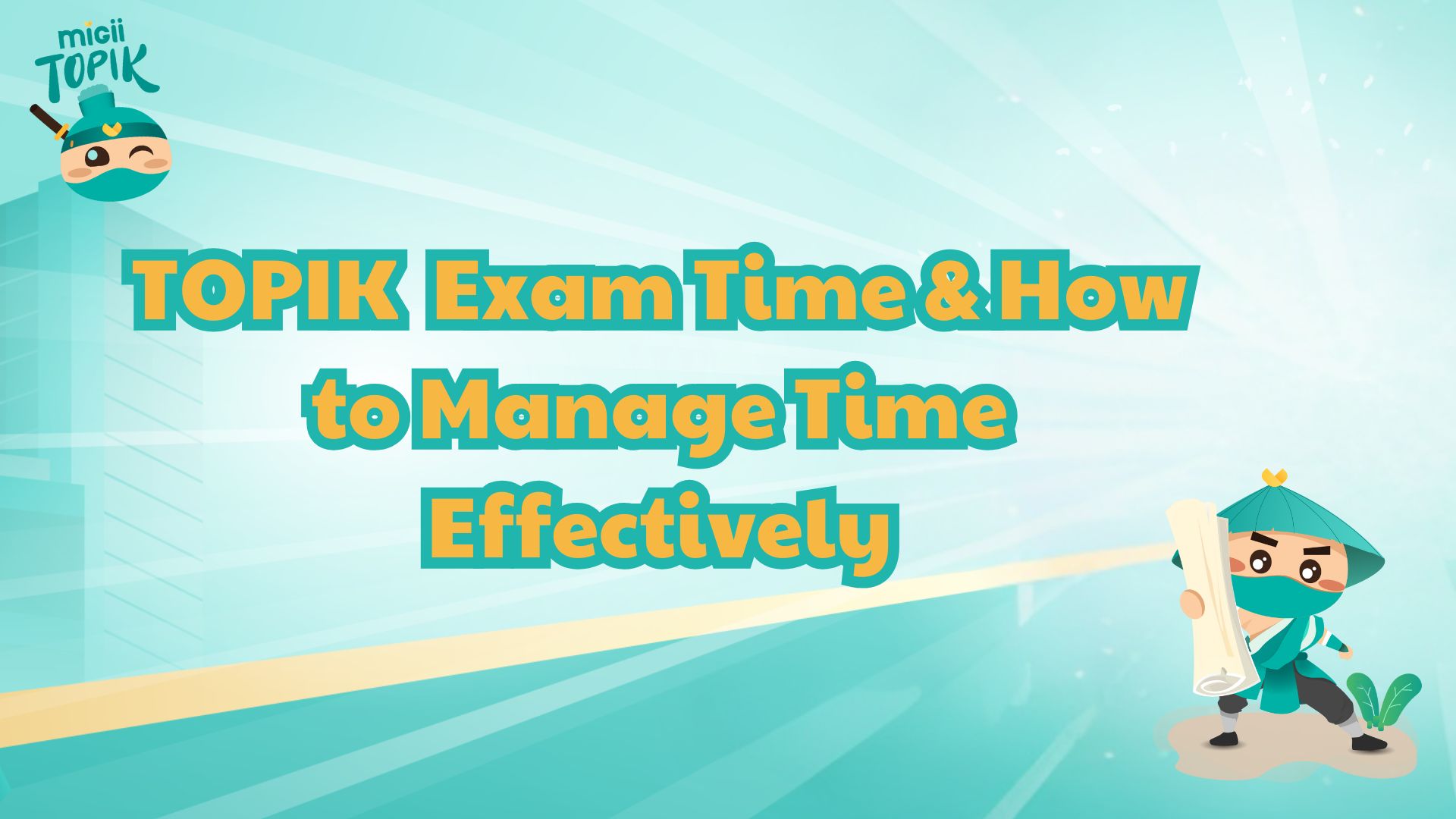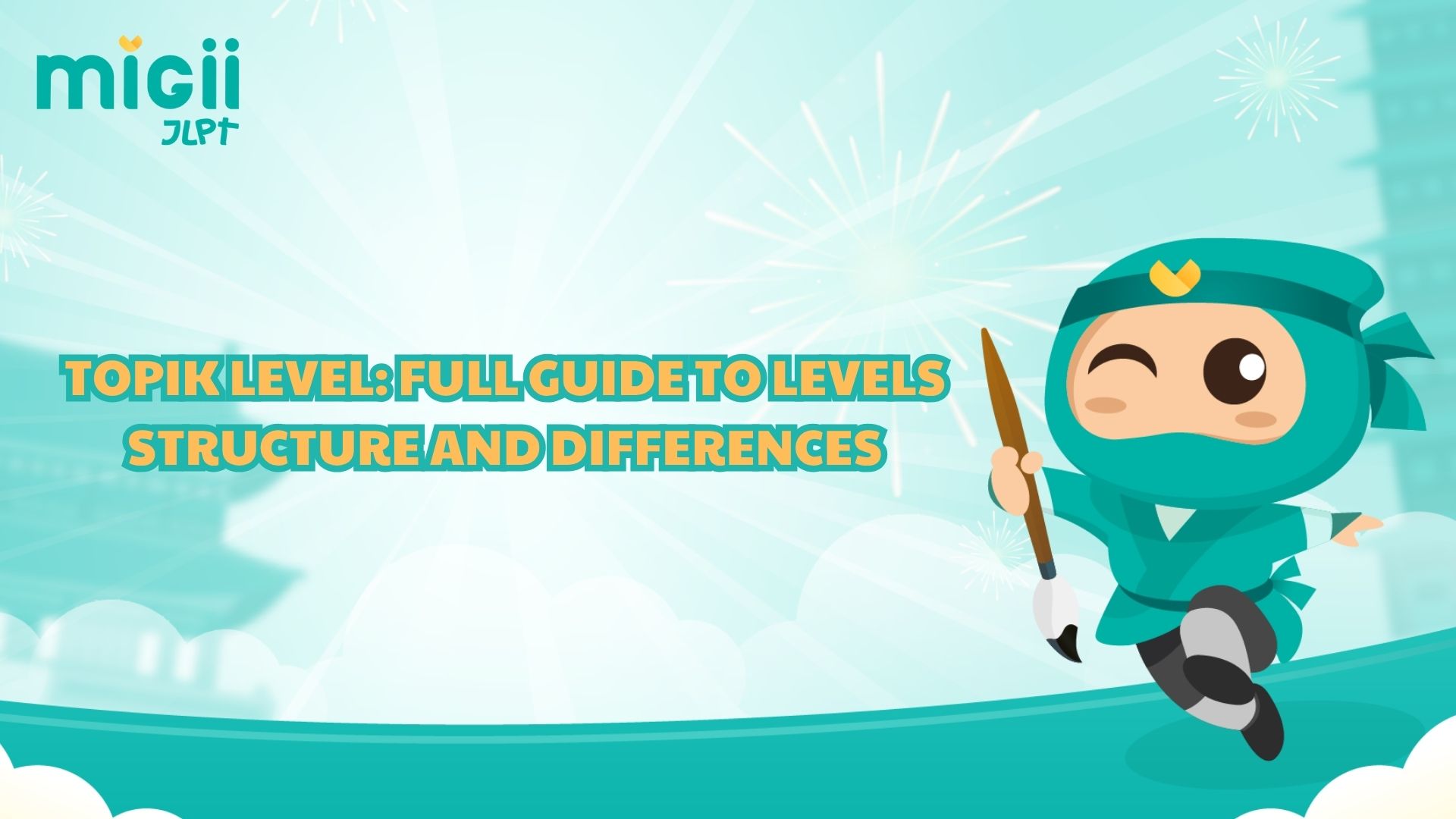TOPIK level to work in Korea is a key concern for many who dream of building a career abroad. This guide not only clarifies which levels are required for different jobs but also offers practical ways to study and succeed. With the support of Migii TOPIK, you’ll discover how to prepare smarter and open more opportunities for your future in Korea.
Understanding TOPIK Levels
TOPIK, the Test of Proficiency in Korean, is divided into two main stages: TOPIK I and TOPIK II. TOPIK I includes Level 1 and Level 2, which measure basic communication skills. At these levels, learners can manage everyday conversations, read short passages, and write simple sentences. This is usually enough for daily life in Korea but not yet sufficient for most professional settings.
TOPIK II, which includes Levels 3 to 6, assesses more advanced abilities. Level 3 indicates functional communication in work and social life, while Level 4 shows the learner can understand and use professional or academic language with confidence. Levels 5 and 6 are considered advanced, demonstrating near-native fluency, the ability to discuss complex topics, and to work in highly professional environments.
Korean employers often recognize these levels when reviewing applications. For entry-level or technical jobs, Level 2 or 3 may be acceptable. However, office positions, teaching roles, and government-related work usually expect candidates to hold Level 4 or above. The higher your TOPIK score, the broader your career opportunities become.
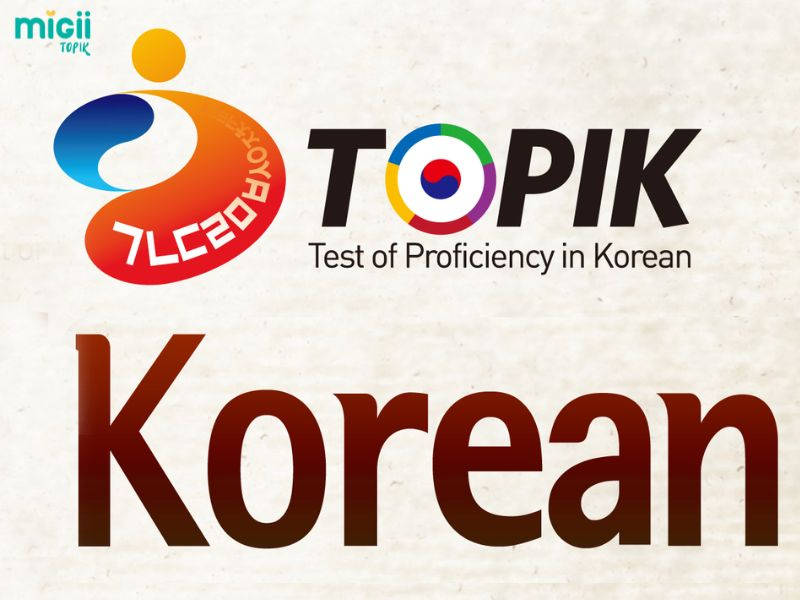
TOPIK levels from basic skills to advanced fluency
TOPIK Requirements for Different Job Sectors (with Study Resources)
The required TOPIK level can vary greatly depending on the type of job you pursue in Korea. Below are the common expectations for different sectors, along with useful study resources to help you prepare.
Office/Corporate Jobs
Most office jobs in Korea require at least TOPIK Level 4. At this stage, candidates can handle professional conversations, write formal documents, and follow meetings with ease. Both Korean firms and international companies often expect this level when hiring foreigners.
To prepare, learners should focus on business Korean and workplace vocabulary. Textbooks designed for office communication are useful, and platforms like Migii TOPIK provide targeted practice to strengthen professional language skills.

Office jobs in Korea usually require TOPIK Level 4 or higher
Technical and Factory Jobs
For factory or technical positions, TOPIK Level 2 – 3 is generally enough. Employers mainly need workers to understand instructions, follow safety guidelines, and communicate in simple terms on the job.
Practical resources such as survival Korean lessons or mobile apps for workplace phrases are ideal for this path. Those applying through the EPS system will also benefit from specialized practice tests tailored to technical roles.

TOPIK Level 2 – 3 for factory and technical jobs
Teaching and Academic Fields
Teaching and academic roles usually demand TOPIK Level 4 – 6, depending on the institution. Public and private schools may accept Level 4, while universities often expect more advanced proficiency to handle lectures, discussions, and research materials.
To reach this level, learners should work with academic Korean resources, online grammar drills, and advanced practice platforms. These tools help build confidence in formal and academic communication.
Government and Public Sector Jobs
Government-related positions come with the highest requirements, often TOPIK Level 5 or 6. Professions such as medicine, law, and civil service require advanced fluency to interpret legal, technical, and policy documents.
For preparation, candidates should practice with official past papers and take intensive mock exams. Apps like Migii are also valuable, offering progress tracking and structured study plans to help learners stay consistent.
Benefits of Higher TOPIK Levels in the Workplace
Achieving a higher TOPIK level does more than just prove your language ability. It can significantly improve your professional life and open doors to long-term opportunities in Korea:
- Better communication with colleagues and clients: Advanced proficiency allows you to understand detailed instructions, join meetings with confidence, and build stronger workplace relationships.
- More career opportunities and promotions: Companies often prefer candidates with TOPIK Level 4 or higher for professional roles, leading to faster career growth, salary raises, and even leadership positions.
- Visa and residency benefits: Holding TOPIK Level 5 or 6 can make you eligible for long-term residency visas such as F-2 or F-5, giving you stability and greater freedom to work and live in Korea.

Higher TOPIK levels bring better jobs, promotions, and residency
How to Prepare for TOPIK to Work in Korea
Preparing for TOPIK requires more than just memorizing vocabulary lists. To succeed, you need a balanced study plan that focuses on all aspects of the language and fits your career goals in Korea.
- Use a variety of study strategies: Traditional textbooks remain a solid foundation, especially for building grammar and structured learning. Combine them with online resources, self-study guides, and practice exercises to strengthen your skills step by step.
- Focus on vocabulary, grammar, and practical use. It is not enough to simply know words and rules. You need to apply them in real communication. Pay close attention to work-related vocabulary, sentence structures, and everyday expressions that will support you in professional settings.
- Practice with mock tests and timelines: Regularly taking past papers and timed mock exams will help you get used to the format and pace of TOPIK. Creating a clear study timeline, whether it’s three months or six months, keeps you accountable and ensures steady progress.
- Leverage online platforms like Migii TOPIK: Apps such as Migii TOPIK make preparation more efficient. They offer daily vocabulary practice, grammar lessons, mock test simulations, and progress tracking tools. For learners aiming for TOPIK Level 3 to 6, these features provide a structured path that saves time while covering everything needed for exam success.
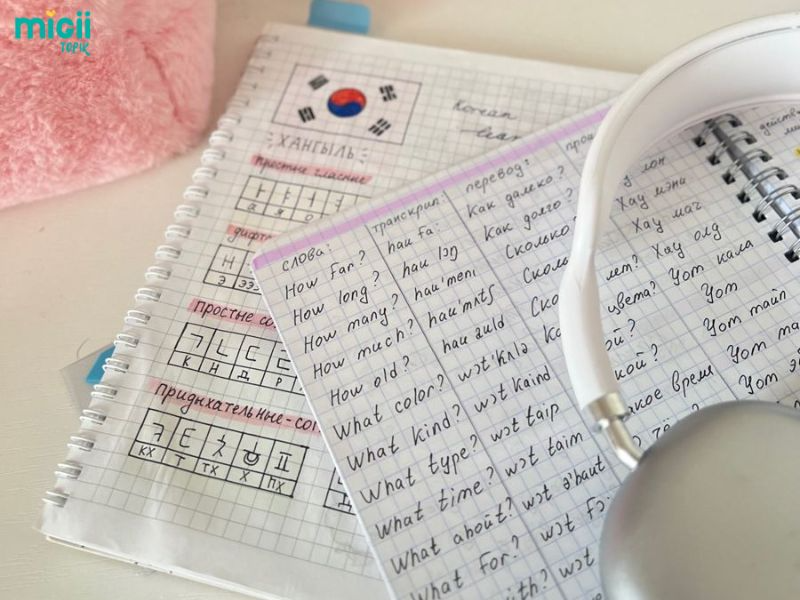
Smart strategies and tools help you prepare for TOPIK success
FAQs About TOPIK and Working in Korea
Do I need TOPIK if I work in an English-speaking company?
Not necessarily. Many global companies in Korea use English as their main language, so TOPIK may not be required. Still, having a certificate gives you an advantage. It shows your willingness to adapt to Korean culture and makes everyday interactions with local colleagues much smoother.
How long does it take to reach TOPIK Level 4?
Most learners need around one to two years of steady study to get there. The exact time depends on your background and how often you practice. With regular lessons, mock tests, and apps like Migii TOPIK, many people reach Level 4 faster than expected.
Is EPS the same as TOPIK?
No, they are different. TOPIK measures general language ability for work or study, while EPS is a test created specifically for foreign workers in fields such as manufacturing, construction, or agriculture. EPS focuses more on practical job-related language, whereas TOPIK covers broader skills.
Reaching the right TOPIK level to work in Korea is essential for building a successful career, whether you aim for entry-level jobs, professional office roles, or advanced positions that require near-native fluency. Higher levels not only improve communication and open doors to better career opportunities but also make you eligible for long-term residency. To prepare effectively, use reliable resources that provide structured practice and clear progress tracking. Start today with Migii TOPIK and take a confident step toward your future in Korea.
